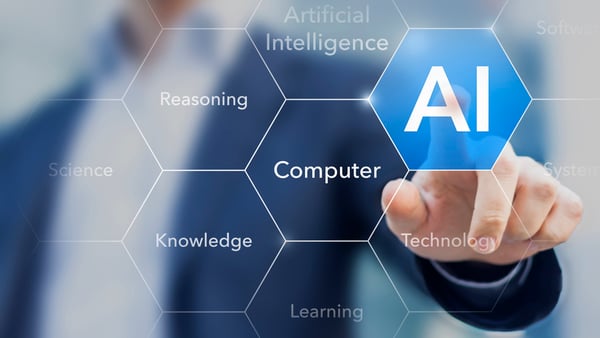 Money managers have used AI-like tools for some time, but the rise of robo-advisers is what caught the attention of indexers and ETF issuers.
Money managers have used AI-like tools for some time, but the rise of robo-advisers is what caught the attention of indexers and ETF issuers.
(Bloomberg) –Kensho Technologies was focused on analyzing North Korean missile launches, earthquakes and elections when John van Moyland joined in 2014. The CIA was among its early backers.
Now, its focus has shifted to finance.
S&P Global Inc. bought the firm last year and the artificial-intelligence startup lasered in on another technical challenge: developing the next generation of indexed funds.
According to van Moyland, machines are ready to design better indexes to underpin investment vehicles passively managing $7.3 trillion in the U.S.
“We're doing what a lot of research shops have done with humans in the past — and doing it at scale, in a highly predictable, highly automated, efficient way,” van Moyland, managing director and global head of S&P Kensho Indices, said in an interview. “Why would you ever limit yourself to aged financial data when there's a sea of information out there?”
The race is on to create robotic ETFs — a bet that human investors would rather trust investment vehicles designed with far-flung data digested with natural-language processing, machine learning and AI.
Goldman Sachs Group Inc. — which along with Google Ventures also backed Kensho in its early years — launched a series of exchange-traded funds that track indexes designed by machines. BlackRock Inc. also offers some bot-built products.
With more than 2,000 ETFs in the U.S. alone, managers must battle to stand out from the crowd. More urgently, fund issuers and indexers need specialized products that can yield higher fees as passive investing takes a bite out of revenue. While a broad-market stock ETF generates fees of as little as 20 cents for every $1,000 invested, AI-designed ETFs range from $1.80 to $8.
Kensho's machines are helping S&P develop indexes with advanced methods that identify relevant stocks. The bots capture all the ways an industry is described — searching for references to self-driving cars as well as automated vehicles, for example — while adding related industries such as lithium batteries in this instance. Among its creations is the Final Frontiers Index of companies involved in exploration of deep space and the ocean depths.
Once programmers have a universe of securities, they use natural-language processing to understand context, confirming that references are to new products or services rather than risks, for example. That lets them weight the index accordingly.
But as the buzz grows, it risks becoming more marketing than substance. Van Moyland warned that the bots require “expertise and discipline if you're going to produce a quality product.” And Peter Zangari, MSCI's global head of research and product development, said there's no substitute for human analysis.
“None of this stuff is, you hand it over to a machine and you're done with it,” Zangari said. “But increasingly you will see this machine learning, AI, whatever we call it, play an increasingly important role in the investment process.
Robots are the ideal data miners — thorough, persistent, and capable of processing huge quantities of information in the blink of an eye. At least 20 funds now explicitly claim to use artificial intelligence as a building block, to the chagrin of some early proponents who fear its meaning is being watered down.
Already one AI-driven ETF has shuttered after failing to attract assets.
“A lot of times, institutions are saying that they're using AI and really all they've done is automate some process,” said Art Amador, co-founder of EquBot, which runs two ETFs that use IBM's Watson platform. “It takes away from everything we're doing.”
Hedge funds and money managers have used AI-like tools for some time, but the rise of robo-advisers is what caught the attention of indexers and ETF issuers. From the get-go, robos like Betterment LLC and Wealthfront Inc. used technology to undercut more-established rivals. Firms are following their lead to unleash a new wave of ETFs on the market.
BlackRock, the world's largest asset manager, offers AI-powered funds known as “ iShares Evolved.” State Street Corp.'s ETFs — which use Kensho's “New Economies” indexes — and Goldman Sachs's Motif-branded funds also owe a debt to machines. And EquBot's Amador said his company aims to be the “Google of finance,” and is working with asset managers to build two indexes for release this year.
“It's an extraordinary and exciting time,” said Jeff Shen, co-chief investment officer of active equity and co-head of systematic active equity at BlackRock. “Nobody really has completely figured it out yet,” he said. “The time is now.”
READ MORE:
Robo-advisor startups going after wealthy clientele
© 2025 ALM Global, LLC, All Rights Reserved. Request academic re-use from www.copyright.com. All other uses, submit a request to [email protected]. For more information visit Asset & Logo Licensing.







